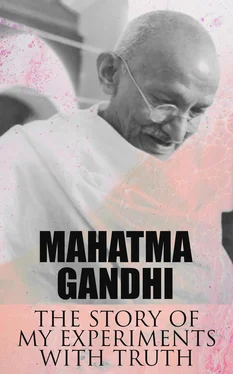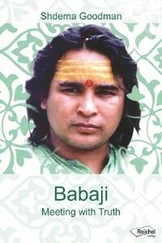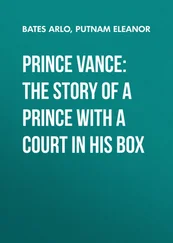Table of Contents
It was easy to be called, but it was difficult to practise at the bar. I had read the laws, but not learnt how to practise law. I had read with interest ‘Legal Maxims’, but did not know how to apply them in my profession. ‘Sic utere tuo ut alienum non laedas’ (Use your property in such a way as not to damage that of others) was one of them, but I was at a loss to know how one could employ this maxim for the benefit of one’s client. I had read all the leading cases on this maxim, but they gave me no confidence in the application of it in the practice of law.
Besides, I had learnt nothing at all of Indian law. I had not the slightest idea of Hindu and Mahomedan Law. I had not even learnt how to draft a plaint, and felt completely at sea. I had heard of Sir Pherozeshah Mehta as one who roared like a lion in law courts. How, I wondered, could he have learnt the art in England? It was out of the question for me ever to acquire his legal acumen, but I had serious misgivings as to whether I should be able even to earn a living by the profession.
I was torn with these doubts and anxieties whilst I was studying law. I confided my difficulties to some of my friends. One of them suggested that I should seek Dadabhai Naoroji’s advice. I have already said that, when I went to England, I possessed a note of introduction to Dadabhai. I availed myself of it very late. I thought I had no right to trouble such a great man for an interview. Whenever an address by him was announced, I would attend it, listen to him from a corner of the hall, and go away after having feasted my eyes and ears. In order to come in close touch with the students he had founded an association. I used to attend its meetings, and rejoiced at Dadabhai’s solicitude for the students, and the latter’s respect for him. In course of time I mustered up courage to present to him the note of introduction. He said: ‘You can come and have my advice whenever you like.’ But I never availed myself of his offer. I thought it wrong to trouble him without the most pressing necessity. Therefore I dared not venture to accept my friend’s advice to submit my difficulties to Dadabhai at that time. I forget now whether it was the same friend or someone else who recommended me to meet Mr. Frederick Pincutt. He was a Conservative, but his affection for Indian students was pure and unselfish. Many students sought his advice and I also applied to him for an appointment, which he granted. I can never forget that interview. He greeted me as a friend. He laughed away my pessimism. ‘Do you think,’ he said, ‘that everyone must be a Pherozeshah Mehta? Pherozeshahs and Badruddins are rare. Rest assured it takes no unusual skill to be an ordinary lawyer. Common honesty and industry are enough to enable him to make a living. All cases are not complicated. Well, let me know the extent of your general reading.’
When I acquainted him with my little stock of reading, he was, as I could see, rather disappointed. But it was only for a moment. Soon his face beamed with a pleasing smile and he said, ‘I understand your trouble. Your general reading is meagre. You have no knowledge of the world, a sine qua non for a vakil. You have not even read the history of India. A vakil should know human nature. He should be able to read a man’s character from his face. And every Indian ought to know Indian history. This has no connection with the practice of law, but you ought to have that knowledge. I see that you have not even read Kaye and Malleson’s history of the Mutiny of 1857. Get hold of that at once and also read two more books to understand human nature.’ These were Lavater’s and Shemmelpennick’s books on physiognomy.
I was extremely grateful to this venerable friend. In his presence I found all my fear gone, but as soon as I left him I began to worry again. ‘To know a man from his face’ was the question that haunted me, as I thought of the two books on my way home. The next day I purchased Lavater’s book. Shemmelpennick’s was not available at the shop. I read Lavater’s book and found it more difficult than Snell’s Equity, and scarcely interesting. I studied Shakespeare’s physiognomy, but did not acquire the knack of finding out the Shakespeares walking up and down the streets of London.
Lavater’s book did not add to my knowledge. Mr. Pincutt’s advice did me very little direct service, but his kindliness stood me in good stead. His smiling open face stayed in my memory, and I trusted his advice that Pherozeshah Mehta’s acumen, memory and ability were not essential to the making of a successful lawyer; honesty and industry were enough. And as I had a fair share of these last I felt somewhat reassured.
I could not read Kaye and Malleson’s volumes in England, but I did so in South Africa as I had made a point of reading them at the first opportunity.
Thus with just a little leaven of hope mixed with my despair, I landed at Bombay from s. s. Assam. The sea was rough in the harbour, and I had to reach the quay in a launch.
Table of Contents
Table of Contents
I said in the last chapter that the sea was rough in Bombay harbour, not an unusual thing in the Arabian Sea in June and July. It had been choppy all the way from Aden. Almost every passenger was sick; I alone was in perfect form, staying on deck to see the stormy surge, and enjoying the splash of the waves. At breakfast there would be just one or two people besides myself, eating their oatmeal porridge from plates carefully held in their laps, lest the porridge itself find its place there.
The outer storm was to me a symbol of the inner. But even as the former left me unperturbed, I think I can say the same thing about the latter. There was the trouble with the caste that was to confront me. I have already adverted to my helplessness in starting on my profession. And then, as I was a reformer, I was taxing myself as to how best to begin certain reforms. But there was even more in store for me than I knew.
My elder brother had come to meet me at the dock. He had already made the acquaintance of Dr. Mehta and his elder brother, and as Dr. Mehta insisted on putting me up at his house, we went there. Thus the acquaintance begun in England continued in India and ripened into a permanent friendship between the two families.
I was pining to see my mother. I did not know that she was no more in the flesh to receive me back into her bosom. The sad news was now given me, and I underwent the usual ablution. My brother had kept me ignorant of her death, which took place whilst I was still in England. He wanted to spare me the blow in a foreign land. The news, however, was none the less a severe shock to me. But I must not dwell upon it. My grief was even greater than over my father’s death. Most of my cherished hopes were shattered. But I remember that I did not give myself up to any wild expression of grief. I could even check the tears, and took to life just as though nothing had happened.
Dr. Mehta introduced me to several friends, one of them being his brother Shri Revashankar Jagjivan, with whom there grew up a lifelong friendship. But the introduction that I need particularly take note of was the one to the poet Raychand or Rajchandra, the son-in-law of an elder brother of Dr. Mehta, and partner of the firm of jewellers conducted in the name of Revashankar Jagjivan. He was not above twenty-five then, but my first meeting with him convinced me that he was a man of great character and learning. He was also known as a Shatavadhani (one having the faculty of remembering or attending to a hundred things simultaneously), and Dr. Mehta recommended me to see some of his memory feats. I exhausted my vocabulary of all the European tongues I knew, and asked the poet to repeat the words. He did so in the precise order in which I had given them. I envied his gift without, however, coming under its spell. The thing that did cast its spell over me I came to know afterwards. This was his wide knowledge of the scriptures, his spotless character, and his burning passion for self-realization. I saw later that this last was the only thing for which he lived. The following lines of Muktanand were always on his lips and engraved on the tablets of his heart:
Читать дальше












